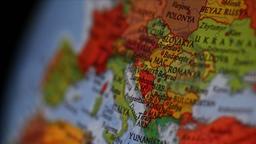Bulgarian cities were recently rife with protest demonstrations and incidents of violence against the Roma. The death of a Bulgarian youth on September 23, 2011 in the village of Katunitsa in what was purported to be an accident was what triggered the protests. The local Bulgarians blaming the killing on a Romani family and its firebrand member Kiril Raskov, notorious for underground and illegal activities, has set fire to their house as revenge. Hundreds of people were arrested in the ensuing incidents of violence. With an organization ensured over the Internet through the social networking sites, the acts of violence perpetrated in Katunitsa spread to the entire country, turning into the Bulgarian-Roma ethnic tension. Bulgarian high level officials fear the incidents may give way to even more serious tensions.
The racist Ataka alliance is believed to have spearheaded the spread across Bulgaria of anti-Roma incidents and acts of violence. Ataka, since its inception, has been aspiring to strain the ethnic relations in Bulgaria by displaying a hostile attitude towards the Roma and the Turkish minority. Besides Ataka, the nationalist party VMRO-BND and the Order, Law and Justice Party are also believed to be lending support to anti-Roma activities and demonstrations. These political parties are hoping to capture more votes in the local and presidential elections due to be held on October 23, 2011 by arousing nationalistic sentiments across Bulgaria through the anti-Roma demonstrations. The Bulgarian media call attention to the fact that the majority of demonstrators are minors, which point to at least some of them having been talked into turning out as a result of political provocations.
The incidents of violence and protest demonstrations in Bulgaria which also draw the attention of the international community have some ethnic, psychological and socio-economic elements besides their political dimension. The incidents which broke out in the village of Katunitsa have caused the years long pent-up ethnic tension and intolerance of anti-Roma to surface. Bulgaria has bragged for years on end about having an ethnic model allowing communities of different ethnicity to co-habit in an exemplary manner. However, the latest incidents in Bulgaria have shed light on the incumbent ethnic problems feeding the nationalist parties.
As some members of the Roma in Bulgaria are implicated in illegal activities, according to polls Bulgarians perceive them as the recalcitrant and non-law abiding members of their society. What is more, the state is believed to not going hard enough on the Roma mafia. A great portion of Bulgarians are of the conviction that with Some Roma chieftains ensuring mass votes to certain political parties in the local elections, these people can easily get away with their crimes or many of the offences committed by them can easily be overlooked. This very perception has laid the psychological groundwork for wider participation in the anti-Roma demonstrations.
The Roma minority as the most impoverished segment of Bulgarian society consist of those who need the state benefits the most. As such, Bulgarians view the Roma who account for 5 percent of the population as an additional economic burden for the state. However, the socio-economic dimension of the incidents should not be seen as limited to that alone. What is being voiced in this context is that the Bulgarians who pour out into the streets are disaffected with their country’s general state of affairs and seriously worried about their economic future. The last time Bulgaria was the scene of incidents of violence of this scale in 1997 when the country was in the clutches of a deep economic crisis. The monetary board set up then and the reforms enacted speedily served up a remedial formula carrying Bulgaria to a macro-economic stability, which has been maintained to our day. However, politicians have not been successful to raise Bulgaria’s level of prosperity. The per capita income in real term in Bulgaria is just 40 percent of the average per capita income in the 27 EU countries.
On the other hand, politicians have not done enough in fighting against corruption and organized crime. Therefore, Bulgaria, despite its membership of the EU since 2007, has not qualified to join the Schengen system this year too, which has made for quite some discontent among the general public. As a result, it could be said that a slew of social and economic woes making the Bulgarians’ daily life more difficult have also found their expression in the anti-Roma demonstrations. But no matter what the reason may be, the fact that the latest incidents have dealt a serious blow to Bulgaria’s ethnic model remains firm and unchanged.
Erhan Türbedar, PhD, TEPAV Foreign Policy Analyst http://www.tepav.org.tr/en/ekibimiz/s/1105/Erhan+Turbedar_+PhD





